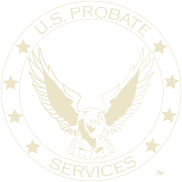Can I use Bankruptcy to Protect My Assets?
August 17, 2017
Bankruptcy can protect your assets in several ways. In a Chapter 7 (liquidation) case, the trustee will take all your non-exempt assets for the benefit of your creditors. But sometimes you can convert nonexempt assets into exempt ones prior to filing. Exemption planning requires advice from a local attorney because rules vary between states and even between judges within a single state. If a judgment creditor (someone who has won a lawsuit against you) obtains a lien on your property, and if that lien impairs an exemption to which you’re entitled under the Bankruptcy Code, you can “avoid” that lien. Avoiding the lien wipes it out, which prevents the lien holder from seizing your property and selling it to satisfy your debt. Some states have homestead laws that protect you only from subsequent creditors. In those states, a bankruptcy filing will probably allow you to use the state homestead exemption against all your creditors, even if you file the homestead the day before the bankruptcy.
Finally, in a Chapter 13 case, your plan may allow you to pay off the arrears on your mortgage or car loan, thereby avoiding foreclosure or repossession.
